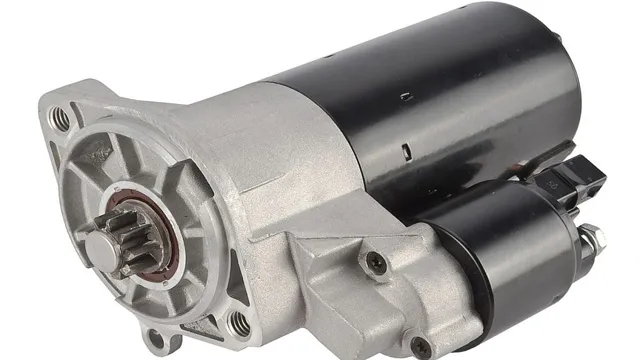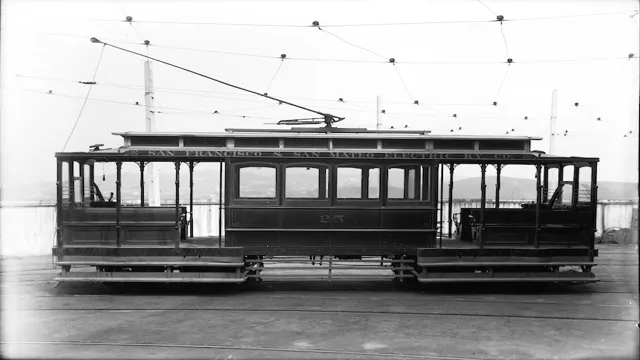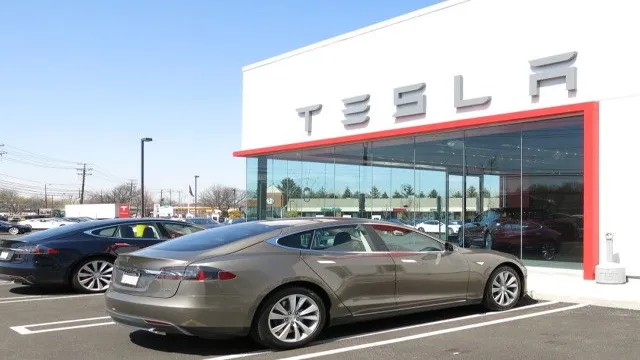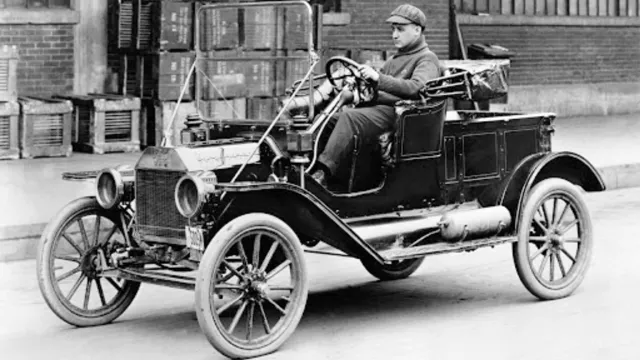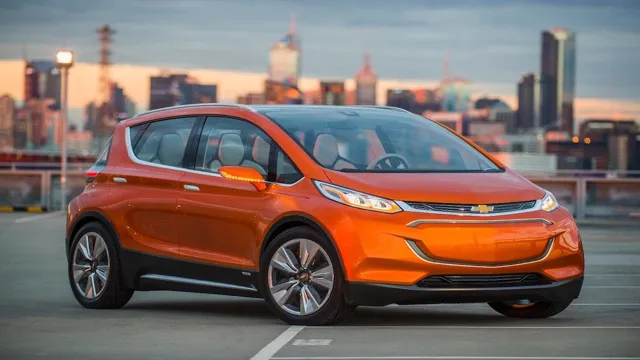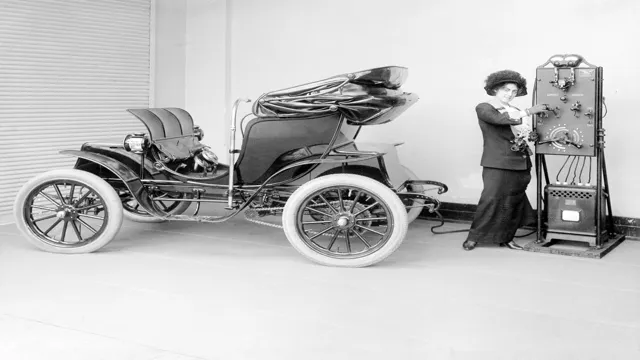The Electric Revolution: Unearthing the Fascinating History of the Electric Car Starter
The invention of the electric car starter revolutionized the automotive industry by making cars easier and safer to operate for drivers. Prior to the development of the electric starter, cars required a hand crank, which was not only physically demanding, but also dangerous in the event of a backfire. The first electric car starter was invented by Charles Kettering in 1911, and was successfully implemented in the 1912 Cadillac.
This breakthrough innovation drastically improved the user experience of operating a car, especially for women and elderly individuals who may have struggled with the manual crank. Over time, advancements in technology have continued to improve the electric car starter. Today, most cars rely on a robust electrical system that includes the starter to start the engine quickly and efficiently.
As we continue to push towards electric powered vehicles and greener modes of transportation, the electric car starter remains a crucial component in the automotive industry. Its invention paved the way for smoother, more convenient commutes for millions of drivers worldwide.
Early Development
The history of the electric car starter can be traced back to the early 1900s. Prior to this time, cars were started manually by using a crank handle. However, this method was difficult and often dangerous.
In 1899, an electric starter was invented by Scottish engineer, Robert Anderson. However, his design was not practical for mass production. It wasn’t until 1911 that Charles F.
Kettering, an American inventor, developed the first practical electric car starter. This new invention quickly became popular and by 1914, most cars were equipped with an electric starter. The electric car starter revolutionized the auto industry, making it easier and safer for drivers to start their vehicles.
Today, the electric car starter continues to be an essential component of every car on the road.
Invention of the Electric Starter Motor
The invention of the electric starter motor revolutionized the automotive industry, but it wasn’t an overnight success story. The earliest attempts at creating an electric starter motor were met with challenges, including issues with reliability and cost-effectiveness. One of the pioneers of this technology was Charles Kettering, an engineer who worked for the Dayton Electric Laboratories Company (DELCO) in the early 1900s.
Kettering collaborated with the chief engineer of the Cadillac Motor Company, who had experienced a personal tragedy when a hand-cranked car accidentally kicked back and killed a friend. Kettering set out to find a safer, more efficient method of starting an engine. After much experimentation, Kettering and his team developed the first viable electric starter motor in 191
The technology soon caught on, allowing drivers to start their cars reliably and without the risk of injury. The electric starter motor was a game-changer, and it paved the way for the modern conveniences that we enjoy in today’s vehicles.
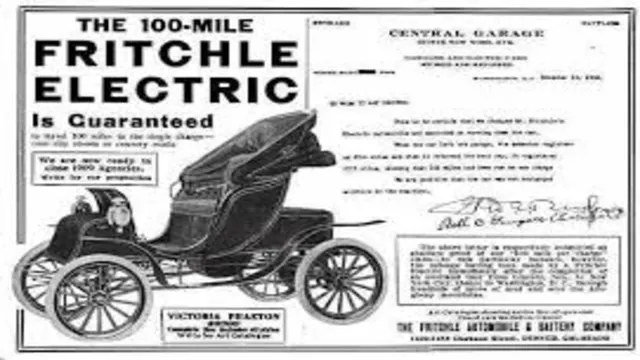
Benefits over Crank Starters
When it comes to early development, there were a lot of benefits to electric starters over crank starters for early automobiles. While crank starters required a great deal of physical effort, electric starters were simply a matter of pressing a button. This made starting a car much easier for the average person, especially those who were not accustomed to manually turning a crank.
The quick and easy start offered by electric starters also meant that cars were more reliable, something that was very important in the early days of automobile travel. Overall, the benefits of electric starters helped to make cars more accessible, reliable, and convenient, which helped to shape the future of transportation as we know it today.
Electric Starters in the Mass Market
The history of electric car starters can be traced back to the early 1900s, when gasoline-powered vehicles had to be manually cranked to start their engines. This was a dangerous and difficult process that required significant physical effort, and often resulted in injuries to drivers. However, in 1911, automobile manufacturer Cadillac introduced the electric starter, which revolutionized the industry and made cars much safer and easier to operate.
The electric starter consisted of a motor-driven gear that engaged with the engine’s flywheel, allowing it to turn over and start. This innovation quickly caught on and became standard in the mass market, paving the way for the widespread adoption of automobiles as a mode of transportation. Today, electric starters are considered an essential component of modern cars, and are a testament to the ingenuity and innovation of the automotive industry.
The 1912 Cadillac Touring Model
The 1912 Cadillac Touring Model was a game-changer in the automobile industry and one of the first cars to come equipped with an electric starter. This innovation was revolutionary at the time, as it eliminated the need for a hand crank and made starting the car easy and effortless. The electric starter was a significant breakthrough that catapulted the automobile industry forward and allowed for widespread use and adoption by the masses.
The 1912 Cadillac Touring Model’s electric starter was the first of its kind, and it paved the way for future advancements in the automotive sector. It was a turning point that made the automobile more accessible and user-friendly than ever before. With the advent of the electric starter, car ownership became a reality for millions of people who would have otherwise been intimidated by the process of starting a car.
The 1912 Cadillac Touring Model’s electric starter was a profound innovation that changed the course of the automotive industry forever.
Electric Starters in Post-World War I Era
In the decades after the end of World War I, electric starters began to hit the mass market. These devices, which could replace the manual cranks that had been used for years to start vehicles, were a huge breakthrough for drivers everywhere. No longer did they have to worry about the physical strain of starting their car or truck every time they wanted to go somewhere.
Instead, a simple push of a button could get the engine running, making starting up a breeze. This innovation paved the way for the modern era of automobiles and helped make driving more accessible to people of all ages and physical abilities. The convenience and ease of electric starters quickly caught on, and soon they were standard features in most new cars.
It’s amazing to think how much of an impact this seemingly simple invention had on the automotive industry and on people’s daily lives.
The 1949 Cadillac
The 1949 Cadillac was a game-changer in the automotive industry. It was the first car in the mass market to feature an electric starter. Before this innovation, drivers had to crank their cars by hand to start the engine, which was often a tiring and dangerous task.
The electric starter made starting the car a breeze, allowing drivers to simply press a button and go. This innovation not only made driving more convenient but also safer, as it eliminated the risk of injuries caused by hand cranking. The electric starter set a new standard for cars, and its success sparked a wave of new technological advancements in the industry.
The 1949 Cadillac paved the way for a new era of automobile manufacturing and changed the way we all drive today.
Evolution of Electric Starters
The history of electric car starters is an interesting one. Believe it or not, cars weren’t always equipped with electric starters. In the early days, cars were started by hand-cranking the engine.
This required a significant amount of physical effort and could be incredibly dangerous if the crank kicked back. In 1911, the first electric starter was introduced by General Motors, revolutionizing the way cars were started. The electric starter made starting the car much safer and easier, and it quickly became commonplace in the automotive industry.
Today, electric starters are an essential component in every modern car. Thanks to this innovative invention, we no longer have to put in a lot of physical effort to start our cars, making our lives much easier.
Introduction of Keyless Remote Starters
The evolution of electric starters has been a game-changer for the automotive industry, allowing for quicker and more convenient vehicle starts. But with the introduction of keyless remote starters, the experience has been taken to a whole new level. No longer do drivers need to fumble with keys or even be physically in the car to start their engines.
With just the push of a button on a remote, the car can be started from as far as 200 feet away. This innovative technology not only offers convenience but can also improve safety as drivers can start their car and allow it to warm up before even getting inside. The keyless remote starter has truly revolutionized the way we start our cars and has become a coveted feature among car buyers.
Modern Electric Starters: More Efficient and Environmentally Friendly
Electric Starters. Electric starters have come a long way since their inception. In the past, electric starters were less efficient and sometimes harmful to the environment due to their reliance on lead-acid batteries that were prone to leaking and producing harmful gases.
However, with advancements in technology, modern electric starters are now more efficient and environmentally friendly. They make use of lithium-ion batteries, which are safer and more reliable. Additionally, modern electric starters have a quicker start time, which means less time spent idling and burning fuel unnecessarily.
All of these advancements in electric starter technology make for a more efficient and cleaner start-up, improving both the user’s experience and the environment’s health. Overall, the evolution of electric starters has been a positive step forward, and we can expect even better and eco-friendlier models in the future.
Future of Electric Starters
The history of the electric car starter dates back to 1912 when the first electric starter was introduced in the Cadillac automobiles. This invention revolutionized the automotive industry, making it easier for drivers to start their cars without having to use a hand crank. Over the years, technological advancements have led to the development of more efficient and intelligent electric starters, making them more popular among car manufacturers.
With the increasing demand for electric cars, the future of electric starters is set to become even brighter. Electric starters are popular because they offer several benefits such as easier starting, improved fuel efficiency, reduced emissions, among others. As car technology continues to evolve, we can only expect electric starters to become more advanced and ubiquitous, eventually becoming the norm across the industry.
Conclusion
And so, with the invention of the electric car starter, humanity ushered in a new era of convenience, reliability, and innovation. No longer would drivers have to suffer the indignity of crankstarting their cars or rely on the unreliable hand-crank mechanisms of the past. Instead, they could simply turn a key and hear the smooth hum of their vehicle coming to life.
The electric car starter may seem like a small, insignificant advancement in the grand scheme of things, but it’s these seemingly small ideas that have the power to transform entire industries and change the world. So the next time you turn the key in your car and hear the sweet sound of the engine roaring to life, take a moment to appreciate the ingenuity and creativity that went into making that possible.”
FAQs
What is the history of the electric car starter?
The first electric car starter was invented in 1911 by Charles Kettering, an engineer at the Cadillac Motor Company.
How did the electric car starter change the automotive industry?
The electric car starter made it easier and safer to start a car, freeing drivers from the dangerous hand-crank method. This helped to popularize the automobile and made it more accessible to the general public.
Were there any earlier attempts to create an electric car starter?
Yes, there were earlier attempts in the late 1800s, but they were not successful due to limitations in battery technology at the time.
How did the electric car starter pave the way for other automotive innovations?
The electric car starter sparked a wave of new automotive technology, including better ignition systems, improved batteries, and more. It also paved the way for the widespread use of automatic transmissions, which require a reliable starter motor to function properly.
